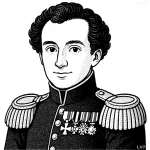“Political power grows out of the barrel of a gun.”

- December 26, 1893 – September 9, 1976
- Born in China
- Politician, thinker
table of contents
Quote
“Political power grows out of the barrel of a gun.”
Explanation
In this quote, Mao Zedong articulates his belief that military power is a fundamental source of political power. For Mao, political authority is not just derived from elections, laws, or diplomacy, but from the ability to enforce power through force, specifically through armed struggle. The “barrel of a gun” symbolizes the idea that, in many situations, control of the military and the ability to use force are essential to maintaining or seizing political power. Mao’s view reflects his revolutionary experiences in China, where the Communist Party came to power not through peaceful negotiation, but through guerrilla warfare and armed struggle against both the Nationalist forces and Japanese invaders.
Mao’s assertion is rooted in his understanding of class struggle and revolutionary change. He believed that armed conflict could be the means to overthrow oppressive regimes and establish a new social order. In his view, the state’s power, particularly in feudal or imperial societies, is primarily maintained by military force. Therefore, for a revolutionary movement to succeed, it must control the means of violence and use them to defeat entrenched powers. Mao’s words were not an endorsement of violence for its own sake, but rather a recognition of the harsh realities of political struggle in the context of oppressive regimes.
In a modern context, this quote can be understood as a reflection on the role of power in governance and the dynamics of political change. While many societies today emphasize democratic processes and peaceful resolutions, the idea that military force has often been used to secure political control remains relevant. This quote can serve as a reminder that in certain circumstances, especially in the face of authoritarianism or imperialism, political power may still hinge on the control of armed forces. However, it also raises important ethical questions about the balance between force and non-violent means in achieving political objectives. While Mao’s statement captures the historical realities of many revolutionary struggles, modern political thought often advocates for peaceful means of resolving conflicts and achieving social change.
Would you like to share your impressions or related stories about this quote in the comments section?

